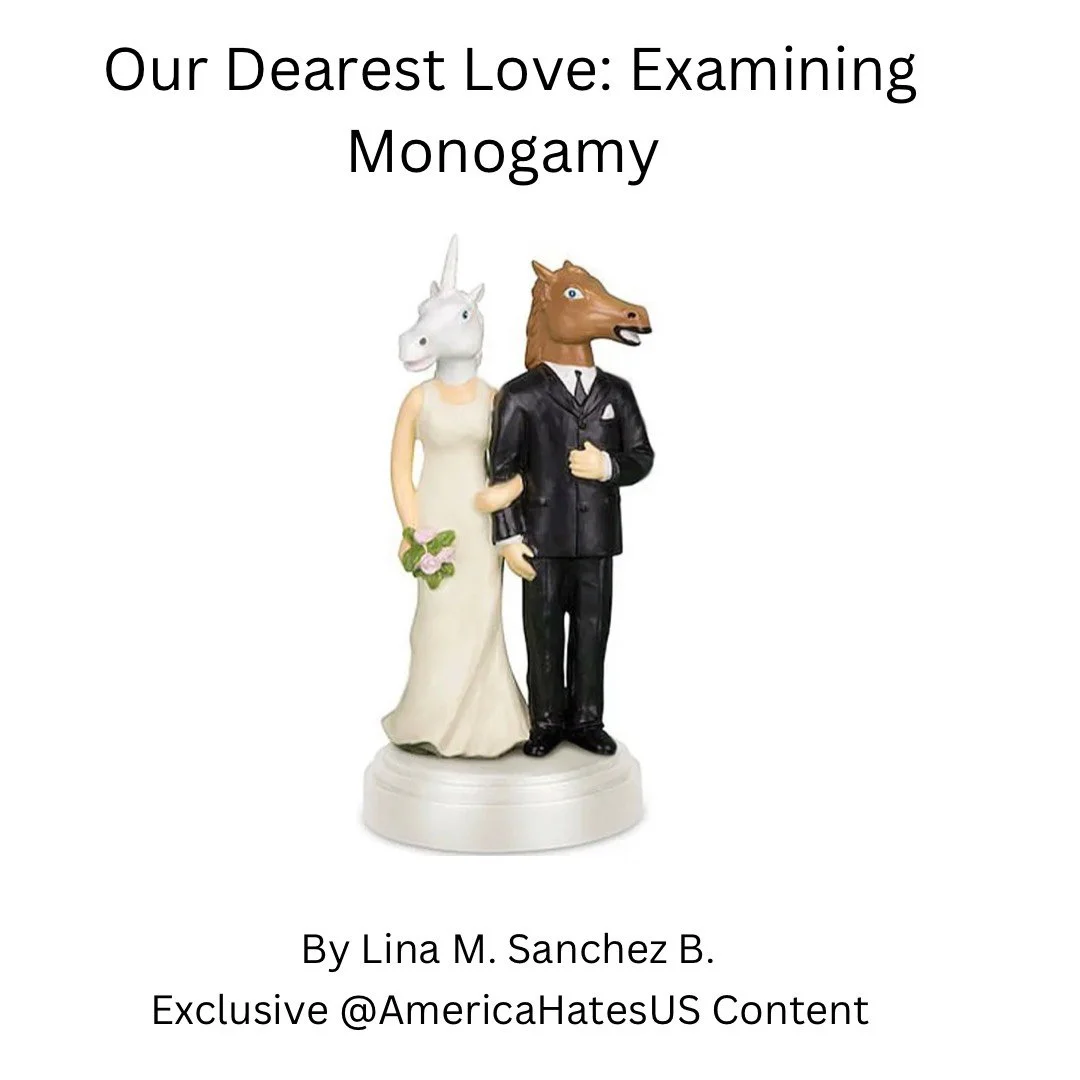Our Dearest Love: Examining Monogomy
(image by Lenox, Royal Doulton and Lladro)
By Lina M. Sanchez B.
For many, romantic love sits at the top of a hierarchical network of interpersonal relationships. As a result, people replace long-lasting, solid friendships for romantic connections, making a single person carry our emotional, sexual, and sometimes even financial needs. We accept hierarchy and displacement as part of the very core of the act of loving. Within this framework and dynamic, I want to reflect on the concept of monogamy.
Violence in relationships often manifests in possessiveness and jealousy. But, how can we not be jealous and possessive if all our emotional needs hang from one person? It's here where the violence, to which we have attributed the surname "romantic." Romantic relationships often imply divesting from other bonds, turning love into a disciplinary tool.
Can healthy love exist in a relationship where both parties have decided to be sexually exclusive? Yes. The problem with the monogamous system has little to do with the number of sexual partners. As Brigitte Vasallo alludes, the answer might lay in polygamy. Still, polygamy isn't about quantity but dynamics. The monogamous system has given the central role of relationships to the so-called romantic relationship and used sexuality as a form of control. We have felt the oppression and, in an attempt to fight it, we have believed that our enemy is the "romantic" aspect. However, the distorted dynamic isn't necessarily intertwined with receiving flowers.
Caring about those who won't give anything tangible in return for our care is revolutionary. Can we imagine a form of love that is not transactional and not governed by sex (even when there is sex involved)?
The challenge is to set love free from the box of romance so that it overflows friendships, penetrating and conspiring with how we enter into any affective relationship. But, unfortunately, the alternative most of us abide by - often mislabeled as polyamory, is nothing more than the reinforcement of the system that oppresses us and materializes in a hyper-consumption of both bodies and affections.
Friendship becomes secondary when romantic love appears. It's understandable: we're conditioned to believe that romantic love is the key, so we redistribute care from those present when romantic love has faded to romantic interests. Complications from this restrictive dynamic could be handled much better, with less dire consequences, if the individuals involved had had a solid and compassionate network of affection. Amy Winehouse sang it beautifully, saying she didn't need alcohol but a friend. Our emotional well-being cannot depend on a single person. And the ticket out of this mess isn't increasing our flawed relationships. Sex has stopped being a mechanism of freedom and turned into a chain that imprisons love. Can freedom be obtained by multiplying sexual partners? The quest for sexual liberation should have more to do with passion and our agency over it.
The number of people we sleep with isn't significant. Polyamory is not about having more partners but about dismantling hierarchies, violence, loneliness, and displacement. So, if a system is just a way of understanding chaos, perhaps one of the first questions we should ask ourselves is: what is the fundamental mechanism of the monogamous system? And, perhaps after unveiling the very nature of our enemy, we could begin to carve a path with our most potent human tool: how would we imagine a way of loving that is authentically free from the same system?
Lina M. Betancourt is a writer born in Bogotá. Her creative work is focused on unraveling the human experience. She has worked as a translator, teacher, and editor, and she is an advocate for a just and sustainable world. Pronouns she/her. Website: linabetancourt.com

